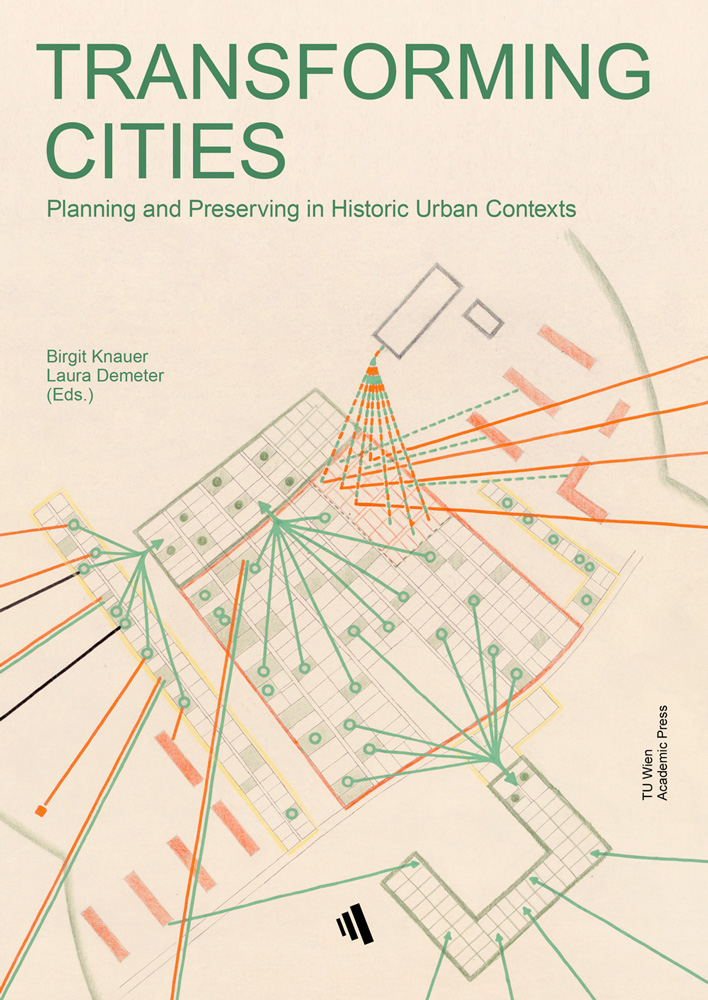TRANSFORMING CITIES
Planning and Preserving in Historic Urban Contexts
This volume introduces research that highlights connections between historical planning strategies and heritage conservation during transformation processes of European cities in the 19th and 20th centuries. Case studies from various countries, including Austria, Bulgaria, Croatia, Germany, Hungary, Italy, Poland, Romania, and the United Kingdom, focus particularly on the period following the Second World War.
One of the aims of this volume is to address planning theories and practices of built cultural heritage conservation in the capitalist Western European context as well as parallel developments and urban transformation processes initiated or undertaken by communist and socialist regimes in Central and Eastern Europe. Specific emphasis is placed on the developments in former communist countries by highlighting continuities and discontinuities from the interwar period to the Second World War as well as in the context of the regime changes after 1989.
The authors cover a wide range of topics at the intersection of planning history, urban history, historical geography and monument preservation. This volume does not claim to be exhaustive; rather, through an interdisciplinary and transnational lens, it seeks to pave the way for future studies examining the transformation processes of cities.
Contents
Introduction
Integrating Heritage in Urban Planning: Multi-disciplinary Perspectives on Transformation Processes of European Cities in the 20th Century
Birgit Knauer, Laura Demeter
Pages 1–10
Part I: Planning and Politics in Historic City Centres
Conserving “Old Vienna”. The Historic City between the Interests of Urban Planning and Heritage Conservation
Birgit Knauer
Pages 15–33
Townscape as a Methodology of Modernity: The Plans and Practice of Thomas Sharp
John Pendlebury
Pages 35–51
Rescaling “Historic Budapest”: Paradigm Shifts in Urban Heritage within Hungarian Architectural Discourse of the 1960s
Gábor Oláh
Pages 53–72
Discursive Strategies, Visions, and Outcomes in the Transformation of Croatian Historic Towns, 1945–1960
Marko Špikić
Pages 73–94
Urban Development and the Politics of History. Historic Districts as Objects of Conservation in Socialist Poland (1945–1980)
Mikołaj Getka-Kenig
Pages 95–113
The Systematisation of the Multicultural Historic City of Kronstadt/Brașov. A Critical Perspective (1921–1965)
Laura Demeter
Pages 115–135
PART II: Cultural, Social and Functional Transformation: Long-term Consequences for Heritage and Public Discourse
Preserving the Unwanted? How Vienna’s Informal Fringe was studied, discussed, and reformed after 1945
Friedrich Hauer, Andre Krammer
Pages 139–159
Remaining Visible: The Visual Trajectory of a Demolished Gasometer in the conflicting Discourses about Socialist Heritage in the former East Berlin since the 1970s
Kathrin Meissner
Pages 161–183
Contemporary Artistic Interventions in Sofia’s post-socialist Urban Space. A case Study of the Visual Seminar (2002–2005)
Melody Robine
Pages 185–200
Brescia’s Old Carmine District: The Impact of Planning and Conservation Decisions on the Area’s Built and Social Environment in the 1970s and 1980s
Carlotta Coccoli
Pages 201–218
The De-commodification and Re-commodification of Vienna’s Gründerzeit Historic Housing Stock
Sandra Guinand, Viktória Éva Lélek, Robert Musil
Pages 219–240
Conclusion
Transforming Cities: The Intersection of Planning and Heritage Conservation over Time
Heike Oevermann
Pages 241–244
Product information
Publication date: September 2025Size: 244 pages
Format: 24 x 17 cm
Language: Englisch
DOI: 10.34727/2025/isbn.978-3-85448-077-8
ISBN (Print): 978-3-85448-076-1
ISBN (Online): 978-3-85448-077-8




